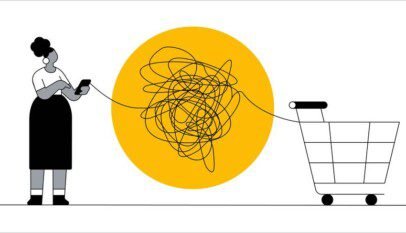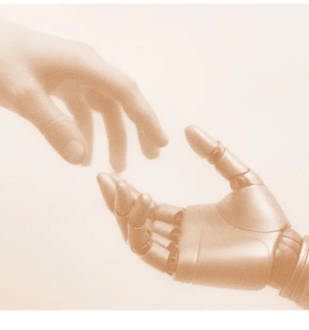
Digital Marketing is Sick.
Who's Going to Take the Blame?
Digital marketing is sick. Very sick. Forrester’s work from over 11-million brand interactions prove that engagement levels continue to plummet [i], P&G has cut back $140-million in digital spending citing it as “ineffective” while simultaneously claiming no negative impact to brand performance citing quarterly earnings rose by 15% [ii]; Forbes cites that only 32% of brands believe they have an effective digital strategy [iii] and it all points to brand campaigns falling short.
Someone’s going to take the blame and it might just be the agency.
In his post “Don’t sell a product, sell a whole new way of thinking“, Mark Boncheck, founder of ‘Shift Thinking’, points to the fact that agencies don’t see the problems [or can’t solve the problems] of today because “they are operating with a different model of the current state.”
Said simply, marketing’s work is incongruent with today’s digital landscape.
Unpacking this model-paradigm incongruence, what’s really being addressed is the required mindset for effective digital marketing.
To be strategically effective in today’s digital world, a marketer must:
“focus on the customer experience and what the customer wants rather than prioritizing what your company wants to market” [iv]
Albeit simple in statement, truly shifting a mindset – and changing behaviour – is a daunting task that according to Professor of Harvard Business School’s, Rosabeth Moss Kanter. When a situation changes (as digital has done to marketing), both leadership traits and competency skills are called into question.
These change problems are significant and unless we’re aware of them, marketers won’t know how to approach marketing properly and usher it in to the new era of digital.
There are 5 reasons from Kanter’s work that will impede the new, truly customer-centric mindset of digital:
- Loss of control: in our world of autonomy, self-choice is removed when something new comes into affect. According to Kanter’s Law: “everything looks like a failure in the middle”. We’re a long way from digital mastery and the pain of today (we’re in the middle) often serves as motivation to go back vs. pressing on.
- Everything seems different: Although change is meant to bring about something different, different is uncomfortable because we are all creatures of habit. Change then “jolts us into consciousness – sometimes in very uncomfortable ways.” Our 100+ year approach towards marketing is now no longer working as it once did and as marketers we’re being forced to “wake up” and yes, it’s uncomfortable.
- Loss of face: By definition, “change is a departure from the past.” The marketers associated with the “last version” (the versions that are now dead or dying) are likely to be defensive about “their work” as they were the ones responsible for it.
- Concerns about competence: The scary one: can I actually do it? Do I have the strategy skills, the sales and presentation skills, the abilities to understand consumer behavior, the knowledge to deploy meaningful content for engagement and the analytical insights to harness and control a brand?
- More work: Change is exactly that, work. Time to invest. Time to learn. Time that you don’t really have but you have to find.
Contextually then, we have:A necessity of mindset change,
A marketing value proposition crisis (80% of CEOs admit they do not trust and are not very impressed by the work done by marketers [v]) and,
A global brand engagement crisis where brands are looking to demonstrate meaningful ROI [vi]
And of course, who’s going to be held accountable for this?
If you look at what brands are saying and what they actually want from their agency partners, the answer is daunting:According to Marketing Week:Only 8% of brands are ‘very satisfied’ with their agency partners.
And according to Accenture Digital:
Only 6% of brands see their agency as a solution to their digital brand needsHere’s what today’s brands are looking for [vii]:
Learn More about DMAC’s Certified Digital-First Marketer program




























